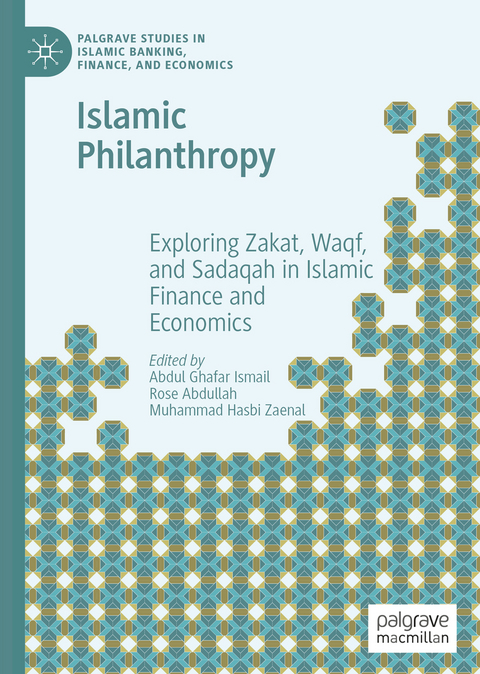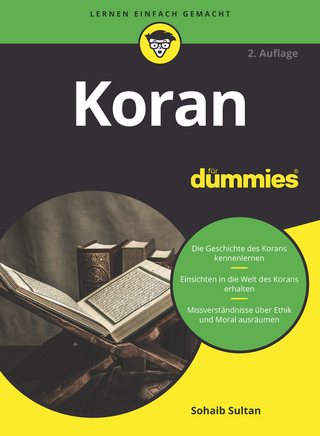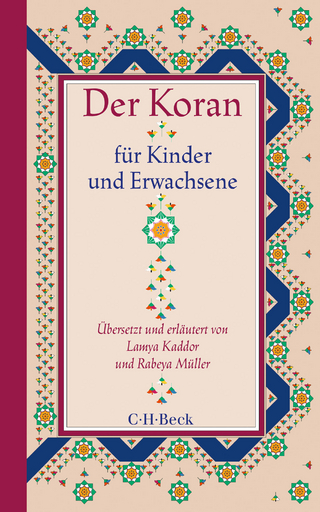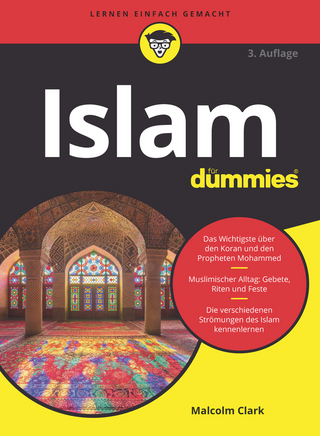
Islamic Philanthropy
Springer International Publishing (Verlag)
978-3-031-06889-8 (ISBN)
In Islam, philanthropy is a spectrum of activity, and these activities differ in their purpose and in the principles on which they operate. To fully understand philanthropy, it is vital to examine not only its purpose but its motive and outcomes. This book identifies three types of philanthropy within this spectrum: Philanthropy as relief (zakat), which seeks to alleviate human suffering; philanthropy as an improvement (waqf), which seeks to maximize individual human potential and is energized by a principle that seeks to progress individuals and their society; and philanthropy as reform (sadaqah), which seeks to solve social problems. Philanthropy as civic engagement seeks to build better community structures and services and is directed by civic responsibility.
This book explores philanthropy in Islam that covers the three primary spectra of activity: zakat, waqf, and sadaqah. Combining contributions from the Conference on Philanthropy for Humanitarian Aid under the jointorganization of Sultan Sharif Ali Islamic University and the International Research Centre of Islamic Economics and Finance, International Islamic University College in collaboration with the Islamic Research and Training Institute, this book will be of interest to students, policymakers, practitioners, and researchers in the areas of Islamic finance and Islamic economics.
Abdul Ghafar Ismail is a Professor of Islamic Financial Economics at Putra Business School, Malaysia. Rose Abdullah is an Associate Professor at Universiti Islam Sultan Sharif Ali, Brunei. Muhammad Hasbi Zaenal is a Lecturer at Universitas Islam Negeri Syarif Hidayatullah, Indonesia.
Part I: Introduction.- Chapter 1: Philanthropy and Its Impact on Socio-economic Development.- Chapter 2: Islamic Philanthropy Instruments.- Part II: Waqf.- Chapter 3: Challenges of Waqf Land Development in Brunei Darussalam.- Chapter 4: A Look to the Ottoman Cash Waqf as Altruistic Finance Model. Chapter 5: Predicting the Behavioural Intention for Cash Waqf: Evidence from Malaysia and Thailand. Chapter 6: Issues and Challenges of Waqf Instrument: A Case Study in Parad.- Chapter 7: Waqf-Based Crowdfunding: Proposed Framework for Entrepreneur Development.- Chapter 8: New Recourse to Flood Victims in Malaysia: A Proposal on Permanent Waqf Flood Evacuation Centre.- Chapter 9: Cash-Waqf for Humanitarian Aid: The Case of Transboundary.- Part III: Zakat.- Chapter 10: A Review on the Impact of Zakat Distribution.- Chapter 11: Exploring the Practice of Islamic Philanthropy among University Students in Indonesia.- Chapter 12: Go Zakat: A Mobile Application to Increase the Collection of Zakat in Indonesia.- Chapter 13: A Collection of Studies on Zakat.- Part IV: Other Philanthropy Instruments.- Chapter 14: Investment of Tabung Masjid in Malaysia toward Fulfilling Maqasid Al-Shariah.- Chapter 15: Concept of Philanthropy in Islam - A Case Study of Khanqahs and Sufi Shrines in Pakistan.- Chapter 16: Muslim Philanthropists and Humanitarian Organizations in South Africa: Making a Difference, Making a Mark.- Chapter 17: Governance Framework for Philanthropic Organisations Directed Towards Taqyid al-Mutlaq.
| Erscheinungsdatum | 25.09.2022 |
|---|---|
| Reihe/Serie | Palgrave Studies in Islamic Banking, Finance, and Economics |
| Zusatzinfo | XXII, 350 p. 30 illus. |
| Verlagsort | Cham |
| Sprache | englisch |
| Maße | 148 x 210 mm |
| Gewicht | 564 g |
| Themenwelt | Geisteswissenschaften ► Religion / Theologie ► Islam |
| Wirtschaft ► Volkswirtschaftslehre | |
| Schlagworte | Humanitarian aid • Islamic philanthropy • sadaqah • Socio-Economic Development • Waqf |
| ISBN-10 | 3-031-06889-0 / 3031068890 |
| ISBN-13 | 978-3-031-06889-8 / 9783031068898 |
| Zustand | Neuware |
| Haben Sie eine Frage zum Produkt? |
aus dem Bereich


